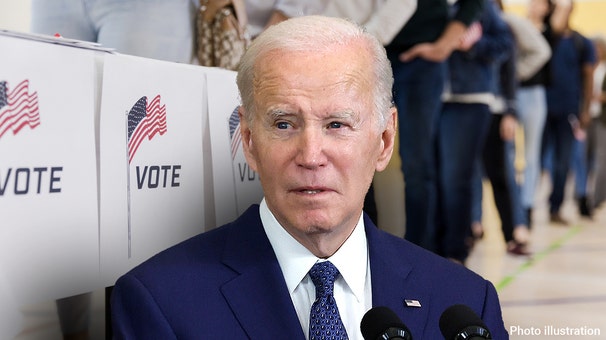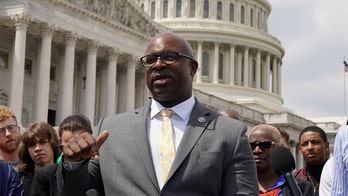A recent survey reveals a widespread loss of faith in the attainability of the American Dream, with only 9% of voters believing it is more attainable than a decade ago.
A new survey from the Rainey Center, a D.C.-based policy-research think tank, has painted a bleak picture of the American Dream, with only 9% of American voters believing it is more attainable today than a decade ago. The survey, which questioned over 1,000 American voters in July, found only 3% of its respondents said the American Dream was "much more" attainable, while 6% said it was "somewhat more" attainable.
Meanwhile, 66% of the survey's respondents said that over the last decade the American Dream has become either "much less" or "somewhat less" attainable. Angela McArdle, president of the national Libertarian Party, told Fox News Digital she was not surprised by the results of the survey, suggesting the country was "in very scary territory" when it comes to upward economic mobility, something she said is "a big part" of the American Dream.

The American Dream: A Fading Hope as Economic Pessimism Rises
The Rainey Center survey similarly found that the younger you are, the more pessimistic people are likely to be about the American Dream. It also found that individual liberties and financial stability ranked among the two most important aspects of the American Dream for respondents.
"I think we're in very scary territory, especially if Kamala Harris is elected," McArdle said, referring to upward economic mobility and the American Dream. McArdle expressed better faith in Trump to revive a more optimistic view of the American Dream.

The American Dream: A Fading Hope as Economic Pessimism Rises
"Donald Trump, you know, while he's been very friendly to libertarians, which I greatly appreciate now, he's not a libertarian. He doesn't bat 1,000, he's not going to get it 100% of the time, but I think, aside from every little libertarian nuance, I think he does understand the American Dream."
McArdle also echoed her argument from July that said an erosion of individual liberties, such as the enforcement of property rights, could be tied to national pessimism about the American Dream. McArdle added that Harris "doesn't care about us having property ownership."

The American Dream: A Fading Hope as Economic Pessimism Rises
"As you grow and become an adult, you want to be able to save up and make a big purchase, whether that's a home for a lot of people, or it's your first car. And when you have a potential president who's not going to enforce rule of law against property crime, it really takes the excitement out of making a major purchase like that."
"I think a lot of people, especially in urban areas, are very nervous to open a small business if the police don't protect your property," McArdle added. "If, instead, they're weaponized to come for you over thought crimes, political speech, things of that nature, what's left of the American dream at that point?"

The American Dream: A Fading Hope as Economic Pessimism Rises
Harris has praised efforts that stripped funding from law enforcement, and during the George Floyd riots of 2020 she referred to the protesters who caused billions of dollars in property damage and frequently assaulted police as "essential." During the riots she supported a bail fund movement that was working to get many of the violent rioters released from jail.
"That is, I think, real destruction of the American Dream," McArdle said, in reference to Harris' failure to protect property rights.
Rainey Center President Sarah Hunt told Fox News Digital that the next administration "must make restoring economic prosperity and equal opportunity" a priority if they hope to restore faith in the American Dream.
"Americans are losing hope, and to most, the concept of the American Dream taught to us at an early age by our parents and grandparents truly feels unattainable," Hunt said. "Young Americans are forgoing the idea of becoming homeowners because of crippling mortgage rates, runaway spending and detrimental inflation. The bottom line: Americans feel like they can no longer afford the American Dream. But there is still hope in reversing course."
Hunt and McArdle both pointed to deregulation as a major factor that could help improve the national pessimism around the "American Dream."
"I think many Americans are in jobs where they don't believe they are fulfilling their potential, or they don't maybe believe that they can find education or provide an education for their children that will help them fulfill their potential," Hunt said. "But, you know, a fundamental part of that is having a government that has sensible policies. And, you know, deregulating some of these burdens and regulations that limit our ability to build things or make it harder to start business would go a long way for giving people more opportunity."
Meanwhile, McArdle said that while she appreciates Harris paying "lip service" to small businesses, she doesn't think Harris "realizes or has any regard or cares what the regulatory framework is really like."
"She talks about lowering taxes for small businesses. Well, that's fantastic, that's a great start, but the barrier to job creation is regulation," McArdle said. ". Each article should have at least 10 paragraphs.










